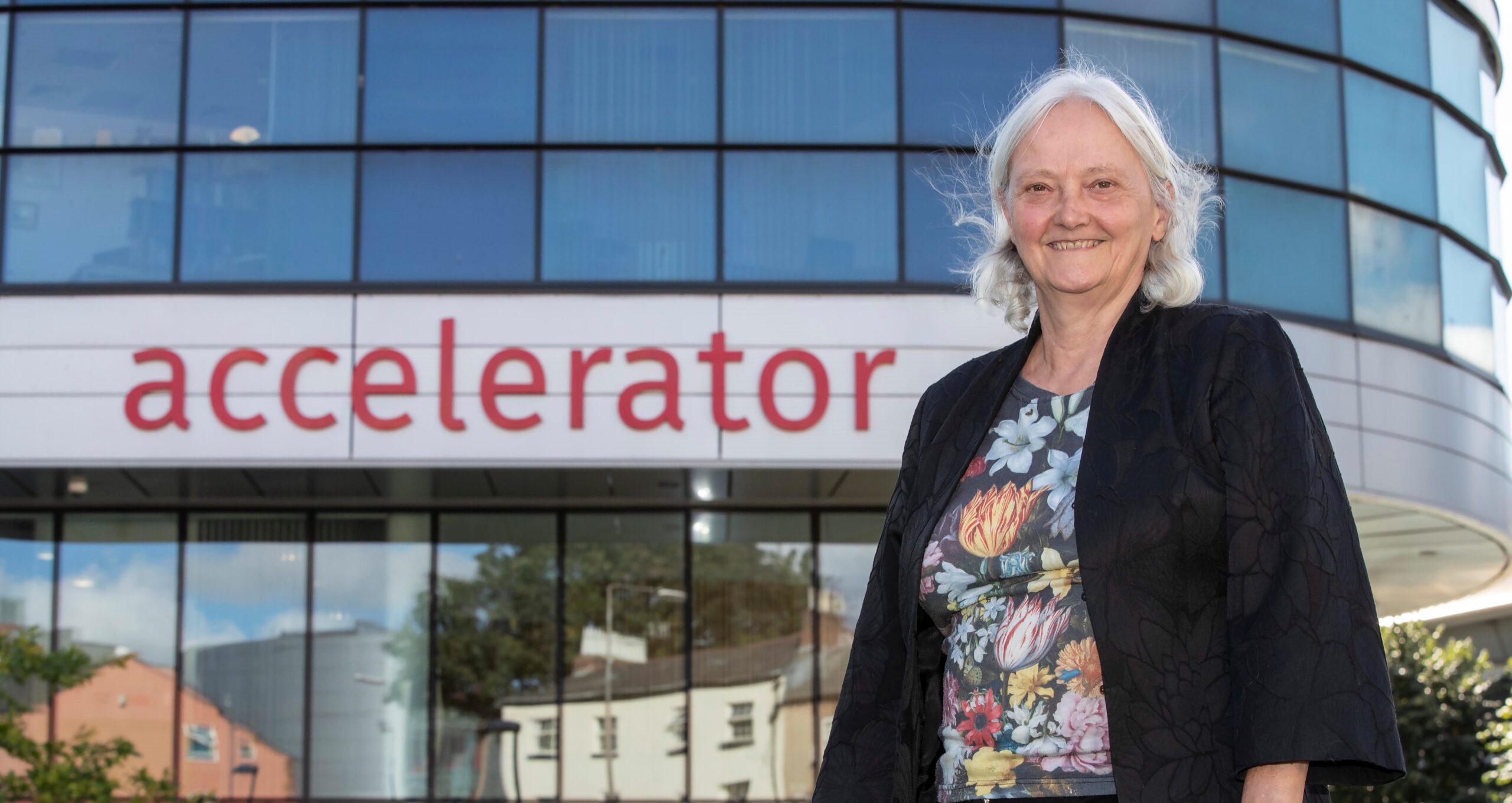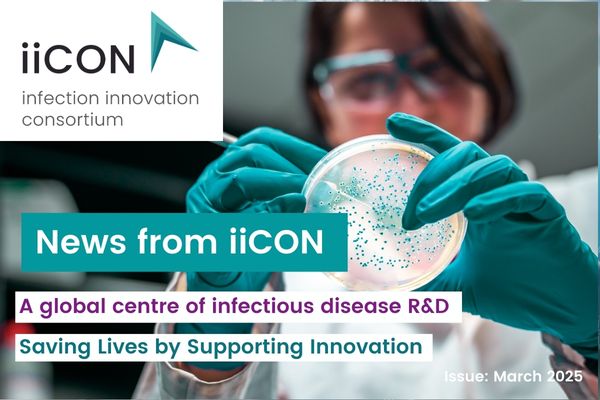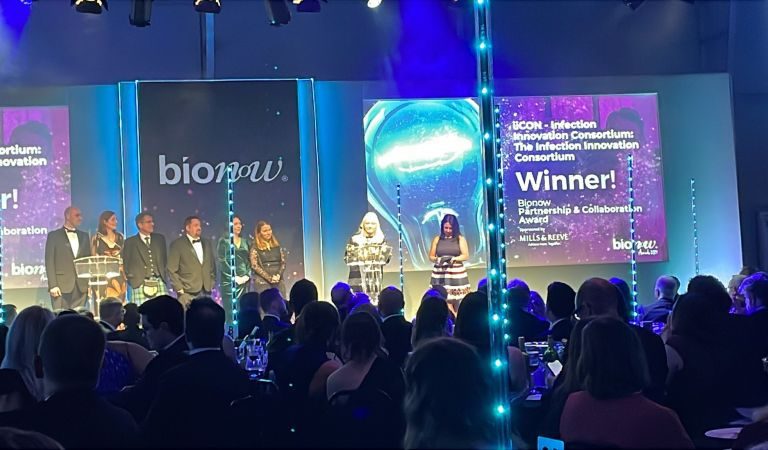- Join the Innovation Journey
- Our Platforms
iiCON to expand pipeline following Research England funding boost

The outstanding results being achieved by the Infection Innovation Consortium – iiCON – have been acknowledged today, with £1.7 million of additional funding from Research England confirmed.
Led by Liverpool School of Tropical Medicine, the iiCON consortium partners, which include Unilever, Liverpool University Hospitals Foundation Trust, the University of Liverpool, Evotec and Infex Therapeutics are working on a series of ambitious programmes to accelerate the development of new products and innovations in infection control.
In the 18 months since its launch, iiCON has already enabled 12 consumer products to get to market, helped secure £200 million of funding for innovation related to infection control and supported the creation of 176 jobs related to the sector.
The extra funding is set to generate a further £40 million of direct investment in a format that moves the infection research and development portfolio in Liverpool City Region closer to £4 billion rather than the current £3 billion 2030 target.
iiCON will now widen its development pipeline, which currently features 15 infection control products, whilst extending its reach with industry partners. The existing cohort includes CN Bio, Unilever, Mologic, Sanofi, Pfizer, Newcells Biotech and Sentinel. To deliver on these two objectives, four new roles at iiCON will be created in business development, programme management, capacity and workforce development and financial planning.
Professor Janet Hemingway, Director of iiCON: Infection Innovation Consortium, said: “Some five billion units of the products and innovations that our team has worked on since iiCON launched are now reaching people around the world. These include vaccines, innovations in diagnostics and consumer products such as mouthwashes and air purifiers. Our model is working well and showing what can be achieved when you bring together industry, academia, and the NHS in a concerted effort to accelerate the discovery and development of new treatments and preventative products for infectious diseases.”
“We’re grateful for the extra support from Research England. That we are achieving these outstanding results in the North and Liverpool specifically is very much an example of ‘Levelling Up’ in action, not least as we are creating high value jobs and helping secure significant inward investment along the way.”
The fresh investment from Research England aligns with an earlier UKRI Strength in Places Fund programme investment of £18.7 million in 2020, which helped establish iiCON.
Liverpool City Region Mayor Steve Rotheram welcomed the additional funding for iiCON, which came on a day when a collaboration worth £5 million between Liverpool’s Pandemic Institute and Speke-based vaccine giant Seqirus aimed at preventing a devastating influenza outbreak was also confirmed.
These two new funding developments followed the publication by Liverpool City Region of an updated Science and Industry Audit (SIA). The original version that was produced for the Department for Business, Energy and Industrial Strategy (BEIS) in 2017 as a means of identifying world-leading innovation outside South East England. Of 25 places to produce an SIA, Liverpool City Region is alone in refreshing theirs, highlighting the city region’s commitment to evidence-backed place-based innovation.
The new SIA reflects the significant developments in the Liverpool City Region over the last five years and the changing national and international picture.
Steve Rotheram, Mayor of the Liverpool City Region, said: “Our ambition is for R&D to be 5% of our economy by 2030 – nearly double the UK target. That would deliver nearly £20 billion to the city region and 44,000 skilled jobs. We have the track-record to show we can deliver, and we now call on the Government to back our ambitions with the long-term investment.”
Professor Janet Hemingway also commented on the updated Science and Industry Audit: “Our region features a deep pool of expertise around infectious disease. Working from a refreshed evidence base allows the Liverpool City Region Combined Authority to think about its investments and make sure that there is a focus on areas of strength.
“In general, LCR has demonstrated great leadership at many levels throughout the pandemic and the crisis strengthened the partnership between the local authorities, academia, the NHS and industry. The refreshed SIA will help build on that progress and momentum and secure positive outcomes from the regional economy in practical terms such as skilled jobs and positioning the region as a centre of innovation within the Northern Powerhouse.”
Dr Jon Hague, chair of Liverpool City Region’s Innovation Board, commented: “iiCON embodies Liverpool’s City Region innovation approach – centred on an established world class capability, and using public R&D funding to lever large scale industry investment to deliver targeted, partnership-based activities and products with global impact.
“The Liverpool School of Tropical Medicine was and remains the anchor asset for our distinctive world-leading strength in Infection Control highlighted in the original 2017 SIA, which we now see as an inflexion point in the City Region’s place-based innovation progress. Five years on, we hope this 2022 refresh, and the remarkable ongoing success of iiCON, will prove to be a new inflexion point towards achieving our collective goal of investing 5% of GVA in R&D by 2030.”


